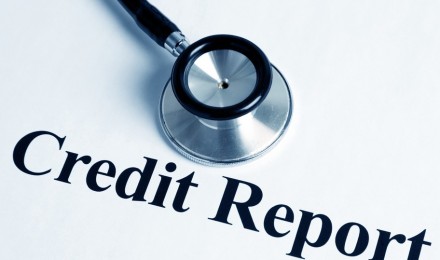Any financially savvy person knows that good credit management is just as important as budgeting and saving money. It’s only by establishing a credit history that you’re able to purchase a home or buy a car. And when you apply for any loan, your credit score dictates the interest rate and ultimately the total cost of financing a loan.
But unfortunately, some people don’t give their credit a fair amount of attention. Perhaps because they do not fully understand the factors that can influence their score. As a result, they make mistakes that have a tremendous impact on their financial future.
If you’ve made mistakes in the past, it’s easy to blame these on lack of credit education. However, there is an abundance of information available to help you manage credit, and you don’t have to be a credit encyclopedia to make wise decisions. But if you want to stay on the right path, you have to know what to do, and what not to d0.
Just because a credit card company gives you a credit card with a $5000 credit limit doesn’t mean that you have to use the credit card to the max. The problem is, some people don’t view credit cards as an emergency payment solution. Rather, they see credit cards as an “I can get whatever I want now, and pay it later” card.
This thinking is not only irresponsible, but dangerous. Balances don’t just go away. If you accumulate a lot of debt and have no way of paying it off, you could potentially pay on this debt for several years, essentially making your credit card company richer.
If your friends and family learn about your 800+ credit score, they may ask you to cosign a loan on their behalf. There might be a sob story explaining how badly they need reliable transportation. The need may be legitimate. However, if you fall for this trap, you could potentially end up paying off the loan, or see your credit score drop if the person stops paying the bank.
The decision to cosign a loan is not one to be taken lightly. Think of all the hard work it took to achieve an excellent credit score – paying your credit cards and other loans on time over the years, and paying off credit cards.
If a bank determines that a person cannot qualify for a loan based on his own credit, this says a lot about his credit habits.
Not only should you avoid cosigning a loan for another person, you should closely monitor your own credit.
It is strongly recommended that everyone check his or her own credit report at least once a year. Everyone is entitled to a free report through AnnualCreditReport.com. However, only a percentage of American consumers check their credit activity on an annual basis.
Understandably, we all get busy from time to time. Even so, it only takes one incident of identity theft or a single error to drive down credit scores. Besides, the report is free.
For bonus protection, sign up for credit monitoring. This is an extremely useful tool for keeping an eye on credit activity. When you sign up for credit monitoring, the company will send an email alert anytime an account is opened in your name, which helps catch identity theft early.
Any financially savvy person knows that good credit management is just as important as budgeting and saving money. It’s only by establishing a credit history that you’re able to purchase a home or buy a car. And when you apply for any loan, your credit score dictates the interest rate and ultimately the total cost of financing a loan.
But unfortunately, some people don’t give their credit a fair amount of attention. Perhaps because they do not fully understand the factors that can influence their score. As a result, they make mistakes that have a tremendous impact on their financial future.
If you’ve made mistakes in the past, it’s easy to blame these on lack of credit education. However, there is an abundance of information available to help you manage credit, and you don’t have to be a credit encyclopedia to make wise decisions. But if you want to stay on the right path, you have to know what to do, and what not to d0.
Just because a credit card company gives you a credit card with a $5000 credit limit doesn’t mean that you have to use the credit card to the max. The problem is, some people don’t view credit cards as an emergency payment solution. Rather, they see credit cards as an “I can get whatever I want now, and pay it later” card.
This thinking is not only irresponsible, but dangerous. Balances don’t just go away. If you accumulate a lot of debt and have no way of paying it off, you could potentially pay on this debt for several years, essentially making your credit card company richer.
If your friends and family learn about your 800+ credit score, they may ask you to cosign a loan on their behalf. There might be a sob story explaining how badly they need reliable transportation. The need may be legitimate. However, if you fall for this trap, you could potentially end up paying off the loan, or see your credit score drop if the person stops paying the bank.
The decision to cosign a loan is not one to be taken lightly. Think of all the hard work it took to achieve an excellent credit score – paying your credit cards and other loans on time over the years, and paying off credit cards.
If a bank determines that a person cannot qualify for a loan based on his own credit, this says a lot about his credit habits.
Not only should you avoid cosigning a loan for another person, you should closely monitor your own credit.
It is strongly recommended that everyone check his or her own credit report at least once a year. Everyone is entitled to a free report through AnnualCreditReport.com. However, only a percentage of American consumers check their credit activity on an annual basis.
Understandably, we all get busy from time to time. Even so, it only takes one incident of identity theft or a single error to drive down credit scores. Besides, the report is free.
For bonus protection, sign up for credit monitoring. This is an extremely useful tool for keeping an eye on credit activity. When you sign up for credit monitoring, the company will send an email alert anytime an account is opened in your name, which helps catch identity theft early.







